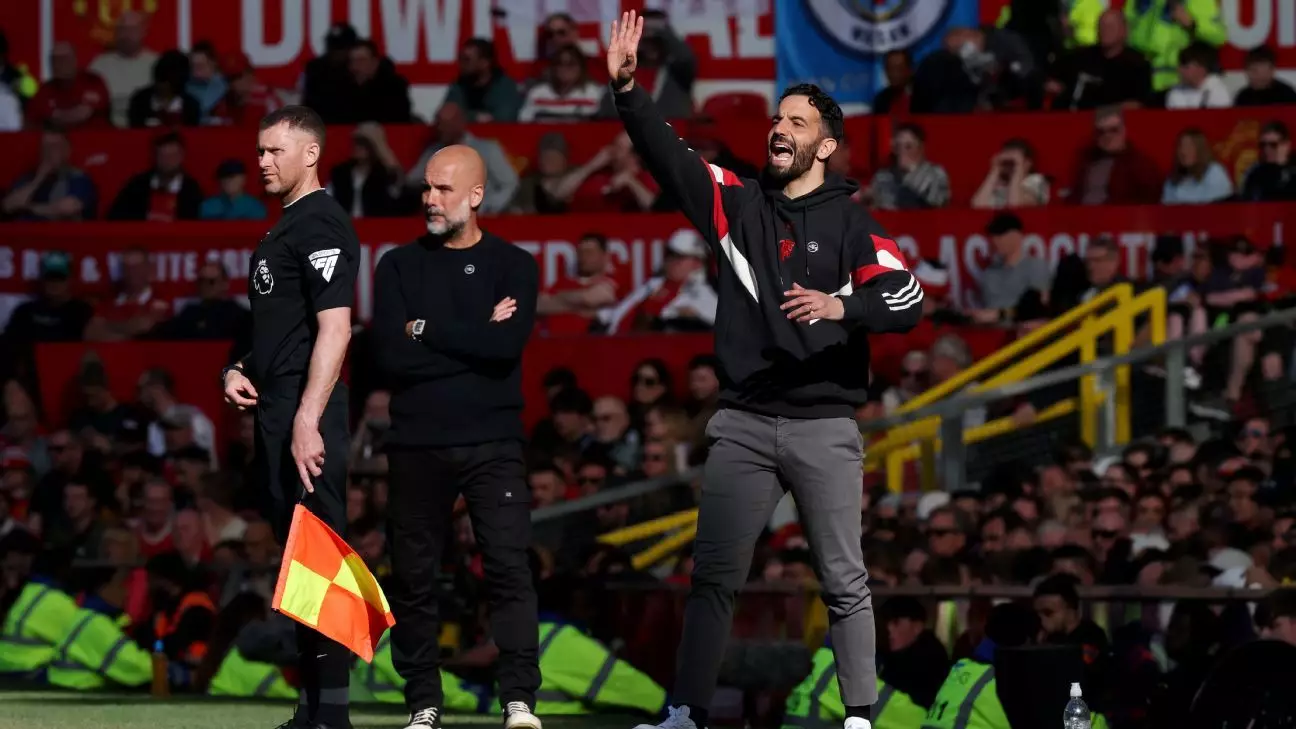The recent Manchester derby ended in a tepid 0-0 stalemate, leaving both Manchester United and Manchester City fans feeling unsatisfied. Ruben Amorim, the United manager, didn’t pull any punches in expressing his disappointment, noting that both clubs currently lack the spark that once made their clashes electric. This match, touted as one of the most inconsequential derbies in recent memory, did not live up to the billing. With United sitting precariously at 13th place in the Premier League and City grappling with their own struggles, including the loss of their title, the stakes felt muted.
Amorim’s observation highlights a broader problem that stretches beyond just this match day. The idea that two of England’s most storied clubs could be embroiled in mediocrity reflects deep-rooted issues in their respective squads and management styles. The narrative of a lack of competitiveness raises the question: what has led these once formidable teams to such a disappointing phase? Injuries, managerial choices, and a lack of strategic clarity all seem to point towards a systemic decline that neither team appears capable of reversing in the immediate future.
Struggles and Reflections
For United, Amorim candidly described this season as potentially the “worst in history,” a statement that carries weight given the club’s storied past. The team’s struggle to capitalize on even the few opportunities available has left fans questioning not just the current lineup but the overall direction of the club. Despite managing to avoid defeat against City, the dull draw merely prolongs their painful journey toward what seems likely to be the club’s lowest Premier League finish to date.
In contrast, City’s dominance appears to be fading. The reigning champions, who dominated English football just last season, are now left to ponder a future where Champions League qualification is at risk. The irony is palpable; a team that was once feared is now viewed through a lens of insecurity, raising questions about what went wrong. Did the club become complacent, or were they simply unable to adapt to the increasing pressures of the modern game?
Signs of Improvement Amidst Adversity
Yet amid this gloom, Amorim believes there is a silver lining, citing glimpses of improvement within his squad. It’s an optimistic outlook that suggests the potential for growth, even when the results do not reflect it. “Of course you can imagine that the next season is going to be so much different,” he remarked, underscoring a commitment to rehabilitation rather than resignation.
This is crucial; clubs like United can often fall into a cycle of despair where quick fixes are prioritized over sustainable growth. Amorim’s admissions that the current challenges are gateways to future success should be the mantra that not only repeats itself in the dressing room but echoes through the entire fanbase.
The subsequent matches against Lyon and Newcastle present not just opportunities for points but a chance to cultivate a renewed sense of identity. It is through these encounters that the foundations for a more robust and resilient Manchester United can be forged, perhaps signaling the beginning of a long-awaited renaissance.
As fans eagerly anticipate these upcoming clashes, the question will remain: can both clubs reclaim their positions of power in the league, or are they destined to navigate the murky waters of mediocrity for a while longer?

Leave a Reply